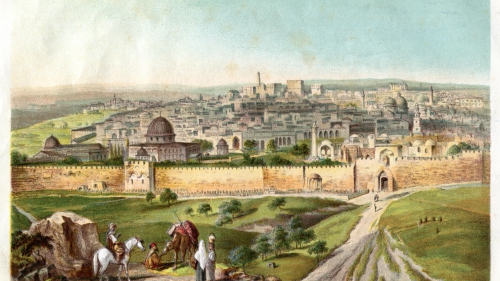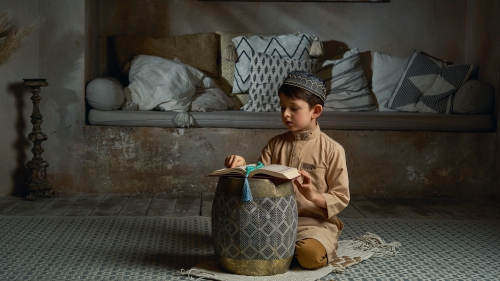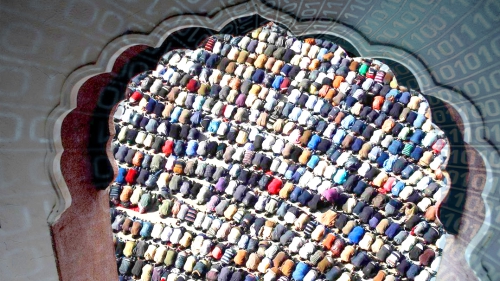Henry Louis Gates, Jr.: Warping African History
Over the course of three days during the last week of October, PBS affiliates across the nation broadcast what was touted as a myth-shattering expose' on the history of Africa. After more than 500 years of skewed, racist, Euro-centric interpretations of African history and culture, Wonders of the African World with Henry Loius Gates Jr. was to be a bold step towards reclaiming the oft-overlooked and minimized splendor of African civilization. Unfortunately Gates failed in delivering on this, and instead left the viewer with a skewed, self-serving chronicle of African history.
For those unfamiliar with Dr. Gates, he is the director of the W.E.B. Du Bois Institute for Afro-American Research, the W.E.B. Du Bois Professor of the Humanities and chair of Afro-American studies at Harvard University. He has numerous books to his name, is a staff writer for the New Yorker and is considered by mainstream academia and intelligentsia as one of the preeminent contemporary African American scholars.
It was therefore a travesty of social science for someone of such respect and renown to spin and skew various aspects of African civilization as Gates did.
Of what crime is Gates guilty? At a very basic level he broke the cardinal rule of socio-anthropological study: he tried to tell the story of Africans from a perspective other than their own. The entire six-part series was laced with his biased perceptions of Africa from a very narrow African-American perspective. In doing so, the lives and histories of the Africans themselves were blurred by the lens of Gates' personal African American experience. No where was this more apparent than in the manner Gates' glossed over the impact of Islam and Muslims in the region.
During the entire segment that dealt with the interrelation of Africans and Arabs/Muslims on the East Coast of Africa, Gates seemed fixated on the theme of conquest. Time and again, he would badger interviewees concerning the nature of Arab/Muslim dealings in Africa, and whether the Arab/Muslim "intent" was to dominate the local cultures. In one instance on the island of Zanzibar, Gates' questioned a young man who described himself as Persian, although all his physical features suggested he was very much an indigenous African. Instead of exploring the complexities of such a self-perception, Gates reduced this young man's choice of identity to a mere question of colonized peoples mimicking their former masters -- a perspective that lacks validity when the actual breadth of the African/Arab/Muslim relationship is considered.
In a segment filmed in Ghana on the West Coast of Africa, Gates approached African after African, greeting them as "my brother." Only a 50-something African American would be so bold. Such choice of words is linked more to the Afro-centric rhetoric of the 1960s and 1970s, than to a true attempt to understand a people. "My brother" loses most of its impact when used in addressing a Ghanaian. While Gates might have been experiencing a homecoming in which he personally viewed every black face he met as a "brother" or "sister," he failed to recognize that the feeling was most likely not mutual. He would have made more of a connection with these Muslim Ghanaians had he used a Muslim greeting such as "as salaamu alaikum, ya akhi," (peace unto you, oh brother).
And maybe most telling was Gates' visit to a West African market where Vodun practitioners could purchase religious items. Vodun is a polytheistic religious tradition that lives on not only in Africa, but in some traditions of African Americans as well as in religious practices in the Caribbean, Central and South America. At this particular market, items such as dried animal heads were being sold for magic spells. Upon exiting the market, Gates passed a man wearing a Kufi-type headpiece, to whom he said, "As salaamu alaikum." Admittedly, there is some syncretism of belief systems in African culture, but anyone with a clear understanding of Islam would know that a Vodun market is one of the last places to expect to see a Muslim. And in Africa, a Kufi on ones head does not necessarily imply that person is a Muslim.
The point is this: Had Gates presented his series solely as a reflection on his personal life and his personal perspectives on African and African American life, it would have been fine. But to dress it up as a work of sociological significance was wrong.
For Muslims, this should be a wake-up call. Gates teaches at one of the most exclusive academic institutions in the world. And like it or not, places such as Harvard, Stanford and Yale produce many of tomorrow's leaders. They will be impacted and their worldview will be shaped by educators such as Gates. Therefore Muslims and other concerned Americans should hold him and other educators accountable for the materials they produce and propagate. Our future depends on it.
Ali Asadullah is the Editor of iviews.com

















